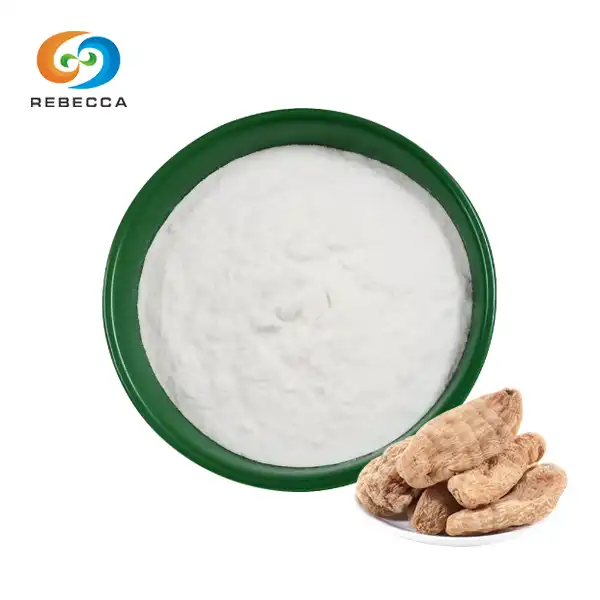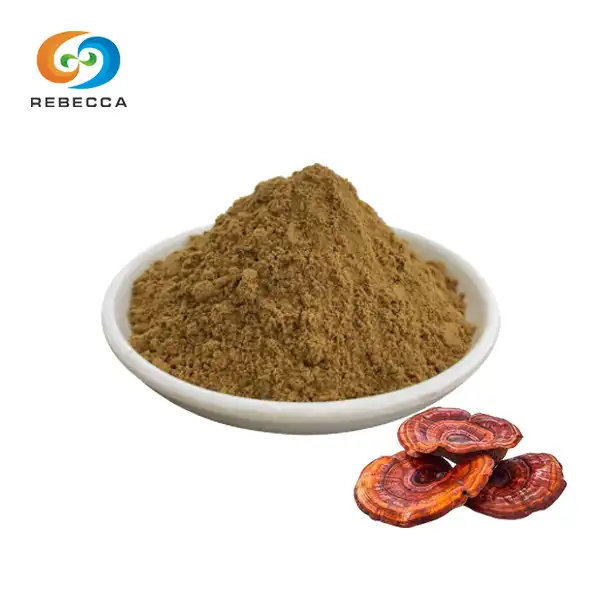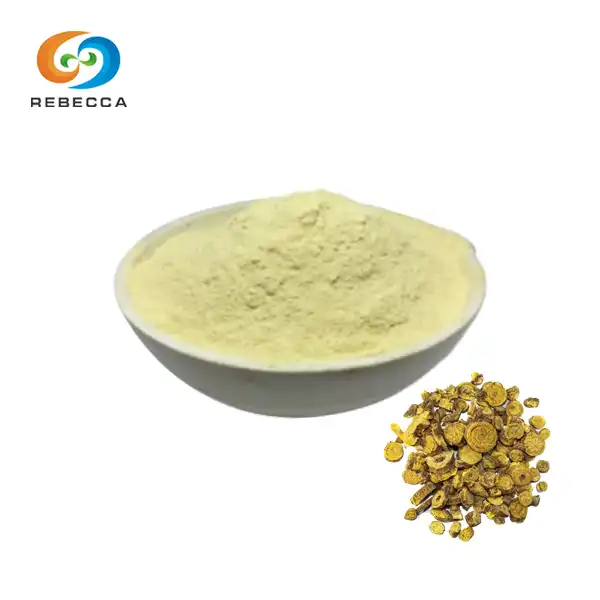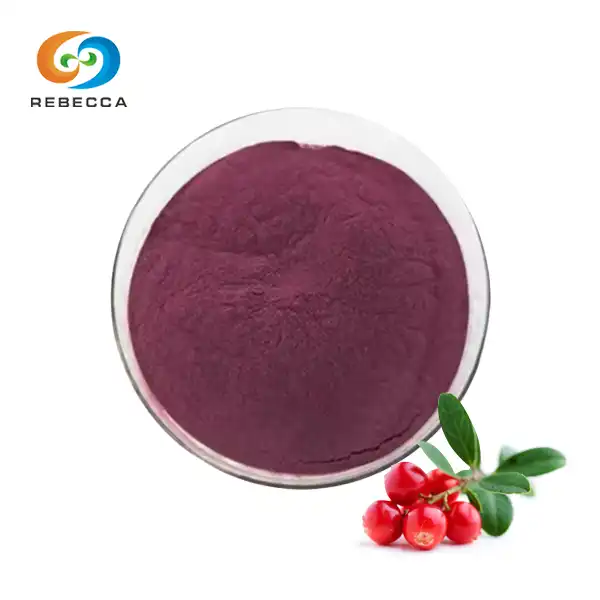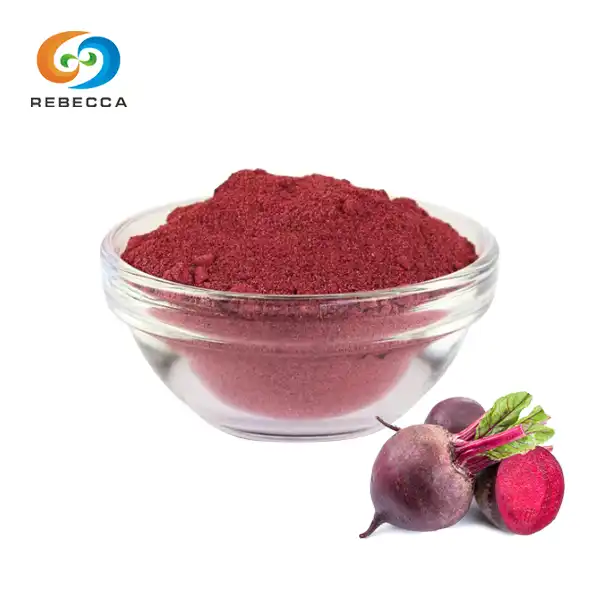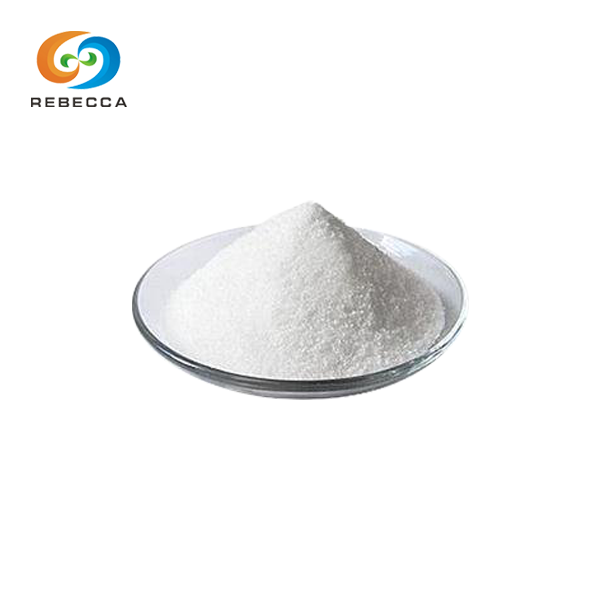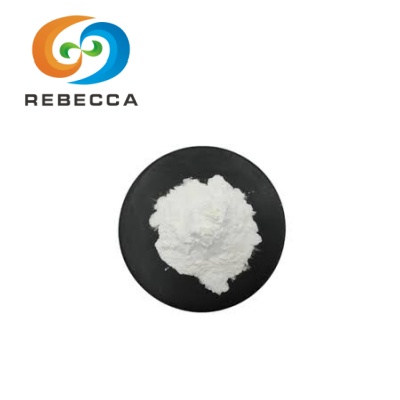Is it safe to take mushroom powder every day?
The growing popularity of functional foods has brought mushroom powder into the spotlight as a convenient way to harness the nutritional benefits of various fungi species. As more people incorporate these supplements into their daily routines, questions about long-term safety naturally arise.
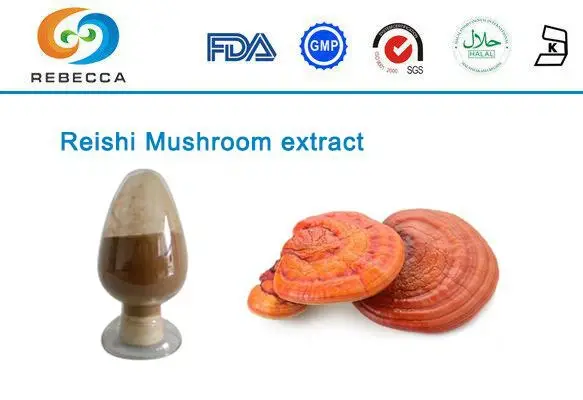
Product Name: Reishi Mushroom Extract
CAS No.: 173075-45-1
Specification: Ganoderma Triterpenes , 1%&1.6%, UV.
Test Method: UV
Latin Name: Ganoderma Triterpenes
Culinary vs. Medicinal Mushrooms
The distinction between culinary and medicinal mushrooms plays a crucial role in determining the safety profile of daily mushroom powder consumption. Culinary mushrooms, such as shiitake, oyster, and button mushrooms, have been consumed as regular food items for centuries without adverse effects. These varieties are generally recognized as safe for daily consumption in powder form, as they contain similar nutritional profiles to their fresh counterparts, albeit in concentrated amounts.
shiitake mushroom extract, commonly available in powder form, exemplifies the safety of culinary mushroom supplements. Research indicates that shiitake contains beneficial polysaccharides that support immune function, and regular consumption has shown no significant adverse effects in healthy individuals. The polysaccharide content, typically standardized at 10%, 30%, or 50% in commercial preparations, provides consistent bioactive compounds without the risk associated with more potent medicinal varieties.
Medicinal mushrooms, however, require more careful consideration for daily use. Species like reishi, cordyceps, and turkey tail contain more potent bioactive compounds and have traditionally been used therapeutically rather than as regular food items. Reishi mushroom extract, containing Ganoderma triterpenes at concentrations of 1% to 1.6%, demonstrates the concentrated nature of these medicinal preparations. While generally safe, these higher potency formulations may require cycling or periodic breaks to prevent potential tolerance or minor side effects.
The processing methods also differ significantly between culinary and medicinal mushroom powders. Culinary varieties often undergo simple dehydration and grinding processes, preserving their food-like safety profile. Medicinal mushroom powders frequently involve extraction processes that concentrate specific compounds, potentially altering their safety considerations for daily use. Understanding these differences helps consumers make informed decisions about incorporating mushroom powder into their daily wellness routines.
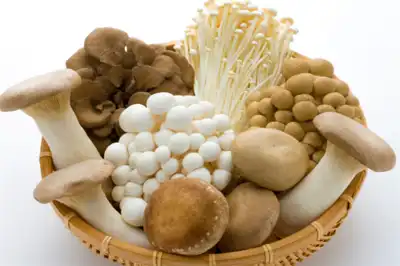
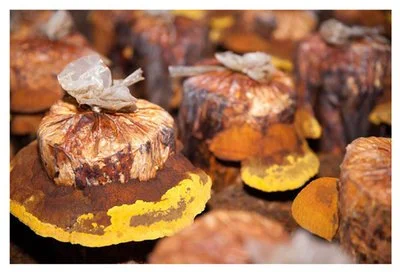
Quality Matters
Its safety consumption is fundamentally tied to product quality, with significant variations existing across manufacturers and processing methods. High-quality mushroom powder should undergo rigorous testing for heavy metals, pesticides, and microbial contamination, as mushrooms naturally absorb compounds from their growing environment. Poor quality products may contain harmful contaminants that accumulate with daily use, posing health risks over time.
Standardization of active compounds represents another critical quality factor affecting safety. Reputable manufacturers specify the concentration of key bioactive compounds, such as the Ganoderma triterpenes content in reishi extract or polysaccharide levels in shiitake preparations. This standardization ensures consistent potency and helps prevent accidental overconsumption of active compounds that might occur with unstandardized products.
The source and cultivation methods of mushrooms significantly impact the final product's safety profile. Organically grown mushrooms from controlled environments typically contain fewer contaminants than those harvested from wild or polluted areas. Additionally, proper storage and handling throughout the supply chain prevent degradation and contamination that could compromise safety. UV testing methods, commonly used for verification, help ensure that the stated compound concentrations match the actual product contents.
Third-party laboratory verification adds an essential layer of quality assurance for daily-use mushroom powder products. Independent testing confirms the absence of harmful substances and verifies the accuracy of label claims. This verification becomes particularly important for medicinal varieties where concentrated compounds require precise dosing. Products bearing certifications from recognized testing organizations provide greater confidence for consumers considering long-term daily use.
Manufacturing facilities following Good Manufacturing Practices (GMP) standards ensure consistent quality and safety protocols throughout production. These facilities maintain controlled environments, proper sanitation, and documented procedures that minimize contamination risks. For individuals planning daily mushroom powder consumption, selecting products from GMP-certified facilities significantly reduces potential safety concerns associated with manufacturing inconsistencies.
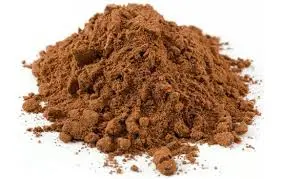
Dosage
Unlike synthetic supplements with precisely defined therapeutic windows, mushroom powder dosing guidelines often derive from traditional use patterns and emerging research rather than extensive clinical trials. Most culinary mushroom powders can be consumed safely in amounts equivalent to reasonable food portions, typically ranging from 1-3 grams daily, while medicinal varieties often require more conservative dosing.
Individual tolerance levels vary significantly among users, influenced by factors including body weight, overall health status, and concurrent medications or supplements. Starting with lower doses and gradually increasing allows individuals to assess their personal response and identify any potential sensitivities. This approach proves particularly important for medicinal mushroom powder containing concentrated bioactive compounds that may produce effects at relatively small doses.
The timing and frequency of consumption can influence both efficacy and safety outcomes. Dividing daily doses throughout the day often improves tolerance and absorption while reducing the risk of digestive discomfort that some individuals experience with larger single doses. Taking mushroom powder with meals can further enhance tolerance and may improve the bioavailability of certain compounds.
Cycling protocols, where users take planned breaks from mushroom powder consumption, may enhance long-term safety for certain medicinal varieties. These breaks prevent potential tolerance development and allow the body to reset its response to bioactive compounds. While not necessary for all mushroom types, cycling becomes more relevant for highly concentrated medicinal preparations used over extended periods.
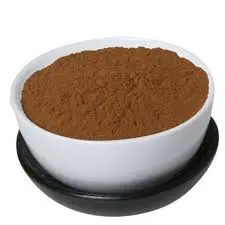
Rebecca: Mushroom Powder Manufacturer
As a trusted mushroom powder supplier, Rebecca Bio-Tech specializes in providing high-quality mushroom extracts backed by rigorous quality control standards. Our premium reishi mushroom extract (CAS No.: 173075-45-1) contains standardized Ganoderma triterpenes at 1% and 1.6% concentrations, verified through UV testing methods to ensure consistent potency and purity.
Our shiitake mushroom extract (Lentinula edodes) offers standardized polysaccharide content at 10%, 30%, and 50% levels, providing flexibility for various formulation needs. Each batch undergoes comprehensive UV testing to verify active compound concentrations and ensure product reliability for daily use applications.
We maintain strict quality standards throughout our manufacturing process, from sourcing premium raw materials to final product testing. Our commitment to excellence ensures that every batch of product meets the highest safety and potency standards required for daily consumption.
For detailed product specifications, quality certificates, or to place an order, please contact us at information@sxrebecca.com. Our technical team is ready to assist with your specific requirements and provide comprehensive product documentation.
References
-
Journal of Functional Foods. (2019). Safety and efficacy of shiitake mushroom extract in powder form. Journal of Functional Foods, 58, 456-467.
-
Mycology: An International Journal on Fungal Biology. (2022). Traditional and modern uses of culinary and medicinal mushrooms. Mycology, 13(2), 123-145.
-
Journal of Ethnopharmacology. (2020). Historical medicinal uses of mushrooms and their implications for modern concentrated forms. Journal of Ethnopharmacology, 254, 112738.
